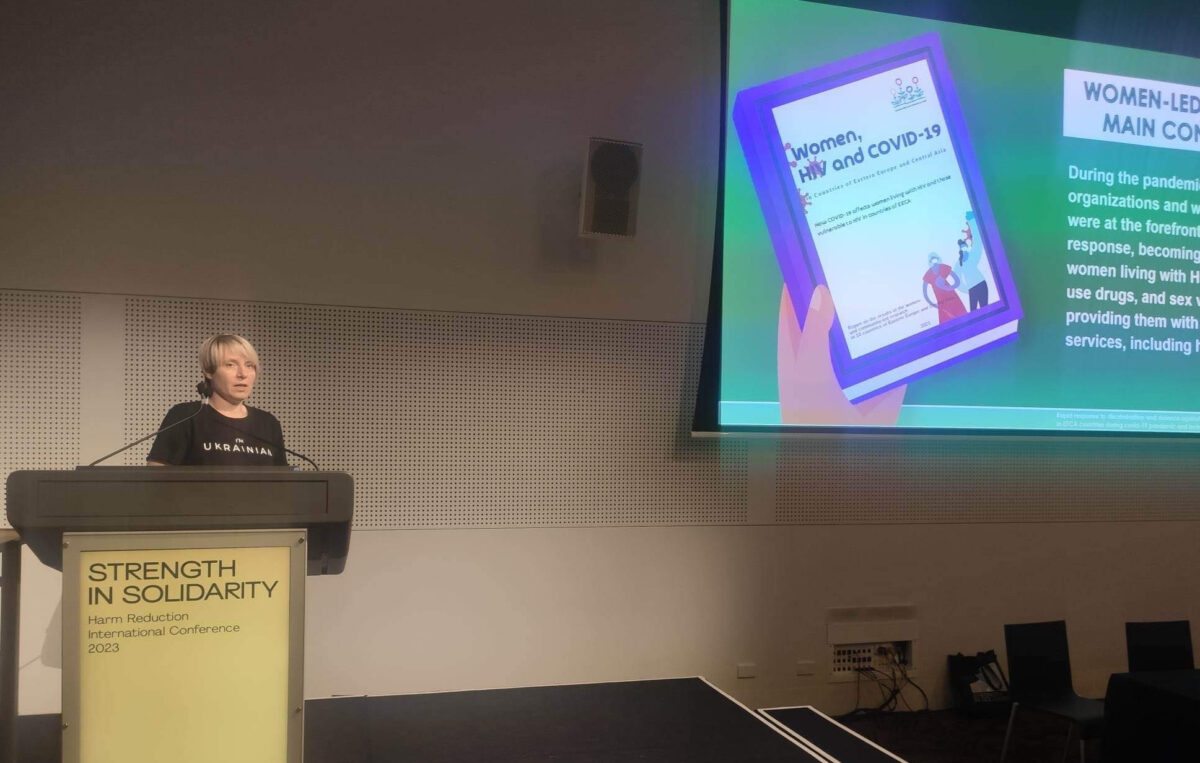During the Harm Reduction International Conference, convened this year in Melbourne, Australia, on 16-19 April 2023, Svitlana Moroz, Chair of the Eurasian Women’s Network on AIDS (EWNA) spoke on Rapid response to discrimination and violence against women who use drugs in EECA countries during COVID-19 and lockdowns.
According to EWNA’s research, during the global pandemic, community-led organizations and women’s networks were at the forefront of the HIV response, becoming the link between women living with HIV, women who use drugs, and sex workers, and providing them with life-saving services, including harm reduction. Svitlana pointed out the main findings what key groups faced during the COVID-19 pandemic:
– police checkpoints at the city entrances were barriers for OAT patients from rural areas to access treatment. Women were even more affected by lockdowns, as they were mainly left at home with children missing daily treatment.
– prolongated methadone distribution (for 5 days) showed its efficiency during the crisis period and lockdown.
– harm reduction items postal delivery can be successfully combined with the distribution of educative and informational materials.
– COVID-19 pandemic provoked a considerable decrease in PWUD income, especially among women, who were the first to lose their jobs. Food packages are very needed.
– domestic violence happened more often during curfews, which requires immediate and remote legal consulting to the victim and support during an appeal to the police.
– request for shelter for WWUD and suffering domestic violence is not covered and needs to be sustainable.
The presentation also took into account REAct data: during the COVID-19 pandemic, more than 700 referrals from women who use drugs (WUD) were registered by national NGOs in 6 countries of the EECA region. And as the statistics show, the correlation between the growth of the pandemic and violence against women who use drugs is evident in EECA – each new “wave” of the pandemic was followed by another spike in violations of their rights.
Svitlana highlighted during her speech that in response, national NGOs made an effective intervention. In the countries, a crisis hotline for WWUD who suffer from domestic violence during the lockdown was established. It enables quick and remote consultations and support to women locked with an abuser. Also, we distributed business cards with crisis hotline phone numbers together with harm reduction and prevention items, that were sent to clients by mail to avoid face-to-face contact. And did numerous informational publications and consulting of clients online in social media as well.
Also read:


